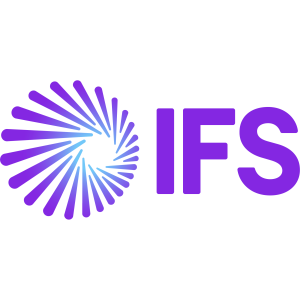The solution is an ERP. I work for multiple clients, and all of those clients are in different sectors. I do see most businesses take it on and use it as a full business management suite of software. It covers every aspect from human resources through to any operational purchasing, buying, contract, and project management and full finance and reporting suites.
For the most part, in all of my experiences with IFS, when a company embarks on using an ERP of this significance, it tends to be the main tool the business then aligns itself with and uses to run.
The software itself is extremely strong and IFS is one of the best I've worked with in terms of listening to a user base and modifying and adapting the software under different releases to improve. There tends not to be a massive weakness in the product itself, as weaknesses historically could be quickly resolved in the next patch or the next release.
It's also highly customizable by the clients themselves. If you use software and you find a weakness, you have the ability with the right technical skills to be able to modify that software in a bespoke way to fit your own company needs, so it tends to not really have any weaknesses on that side.
From a user perspective, the fact that it has fully open APIs and it is very customizable is, or at least was, quite unique to IFS from an ERP software industry which is usually more locked down. Historically you bought the software, and if you wanted to make a change to that software, you maybe needed another field or another page or a function, you would request that to be developed by the software developer itself. You would pay them for it, they would release it, and it would take many, many months. Then, you may also pay them to maintain that since it's outside of the core build. With IFS, going back to around Application 9, if I don't like what a field's called, I can change its name or I can add new fields, new pages, and new functions myself, within reason.
Most businesses will have elements that are unique to them. ERP generally in the past was one size should fit all. For some companies, especially companies that really believe in their own uniqueness, that can sometimes be a problem. IFS addresses that wonderfully by saying, "Well actually, if you don't like that column being there, you have the ability to just right mouse and remove it. And if you want to add a new one, you can do this."
That's a massive feature for usability. In terms of the most recent cloud-based software IFS has again been quite forward-thinking in modernizing the way that ERP works. They moved more towards almost like a phone model, in that every few months, it'll have new software updates and deployments with optional new features.
What IFS has done with IFS Cloud is shake up the industry again a little bit by saying, "Well, we're not going to build any more versions of it. Instead, you buy IFS cloud, that's your core platform, and we will release bi-annual updates that you can opt into."
I'm a big fan of the fact that they lead. It's nice to see software with a modern mentality coming out to actually say, "We think we should do things differently."






